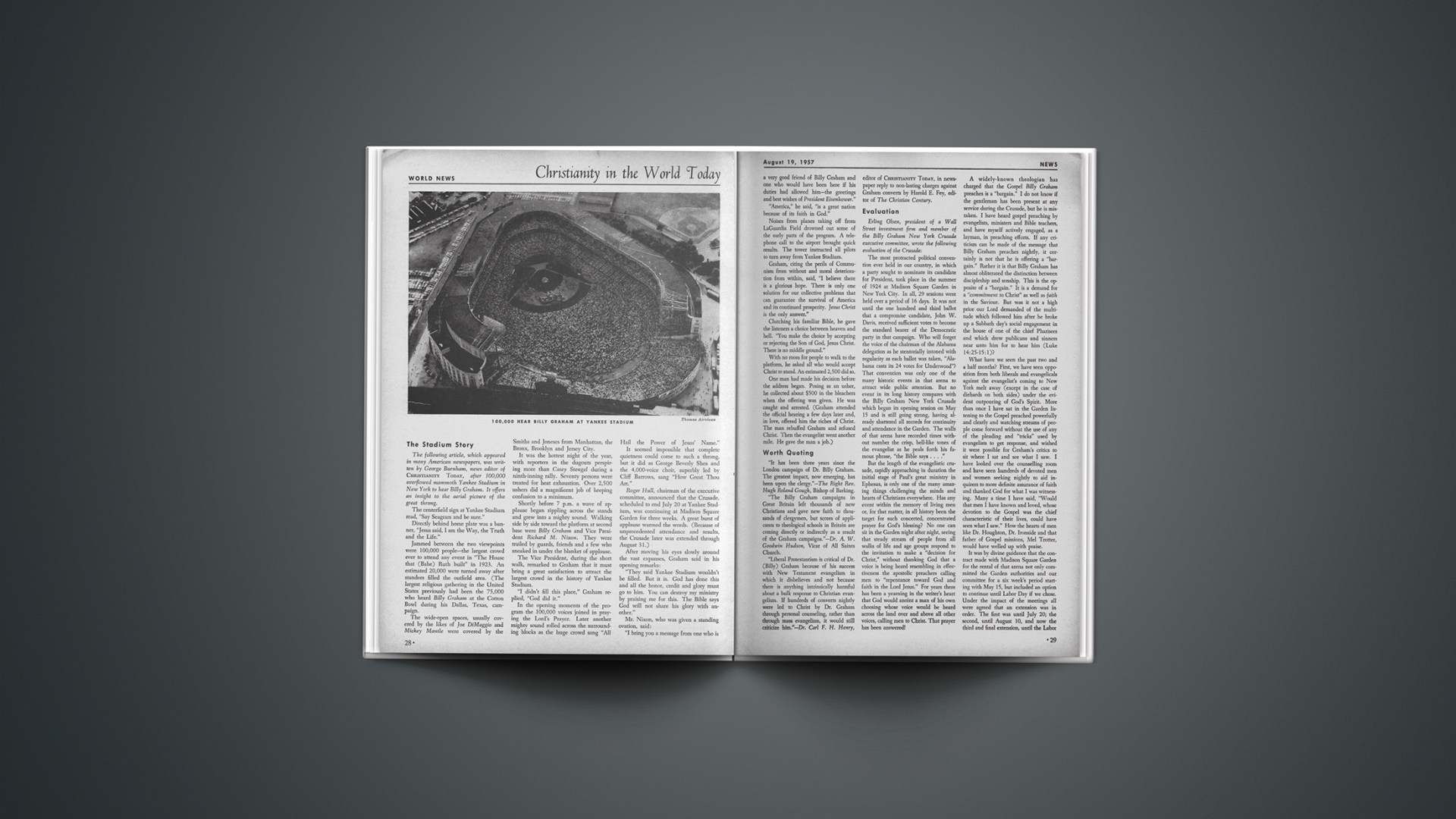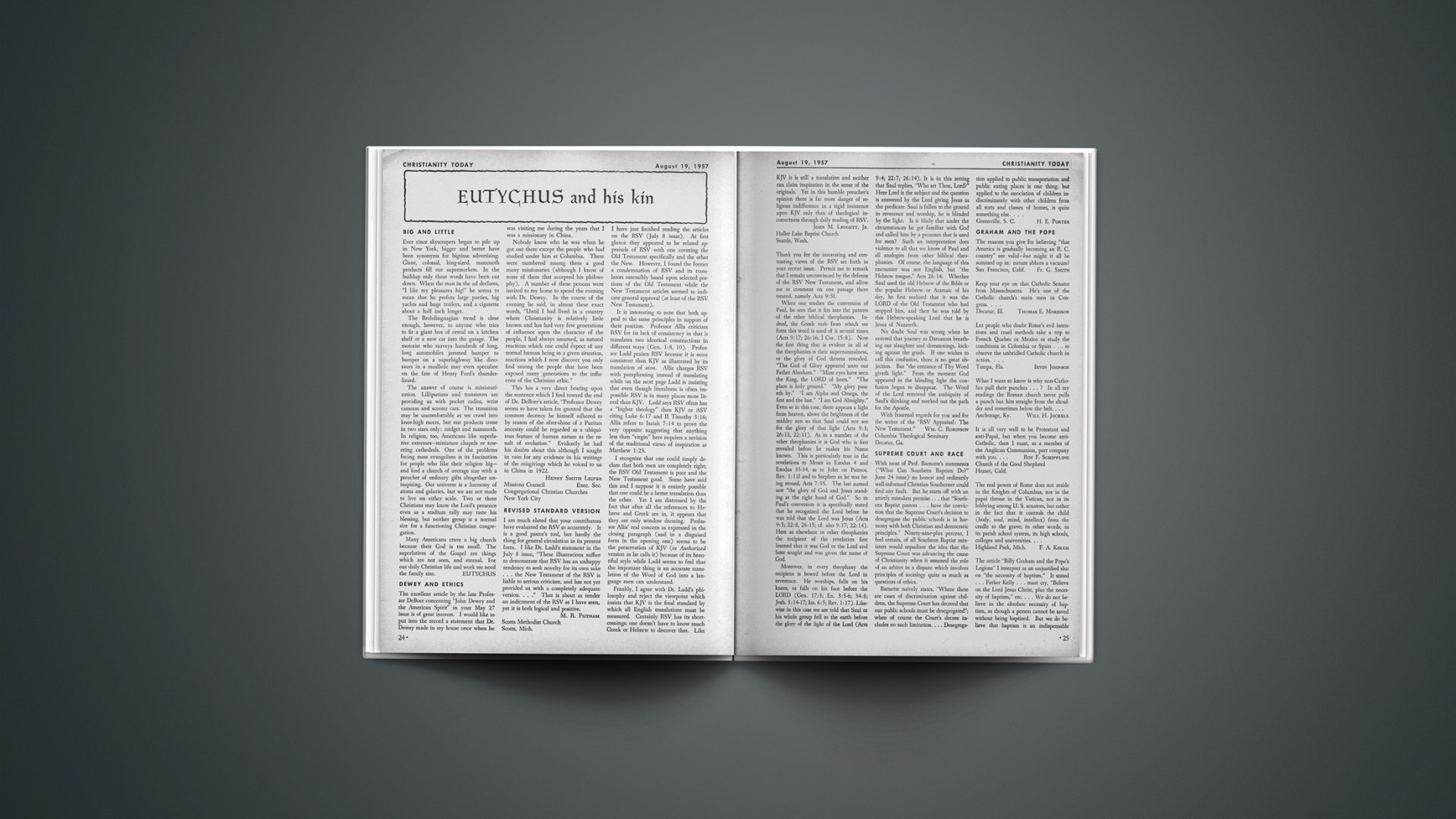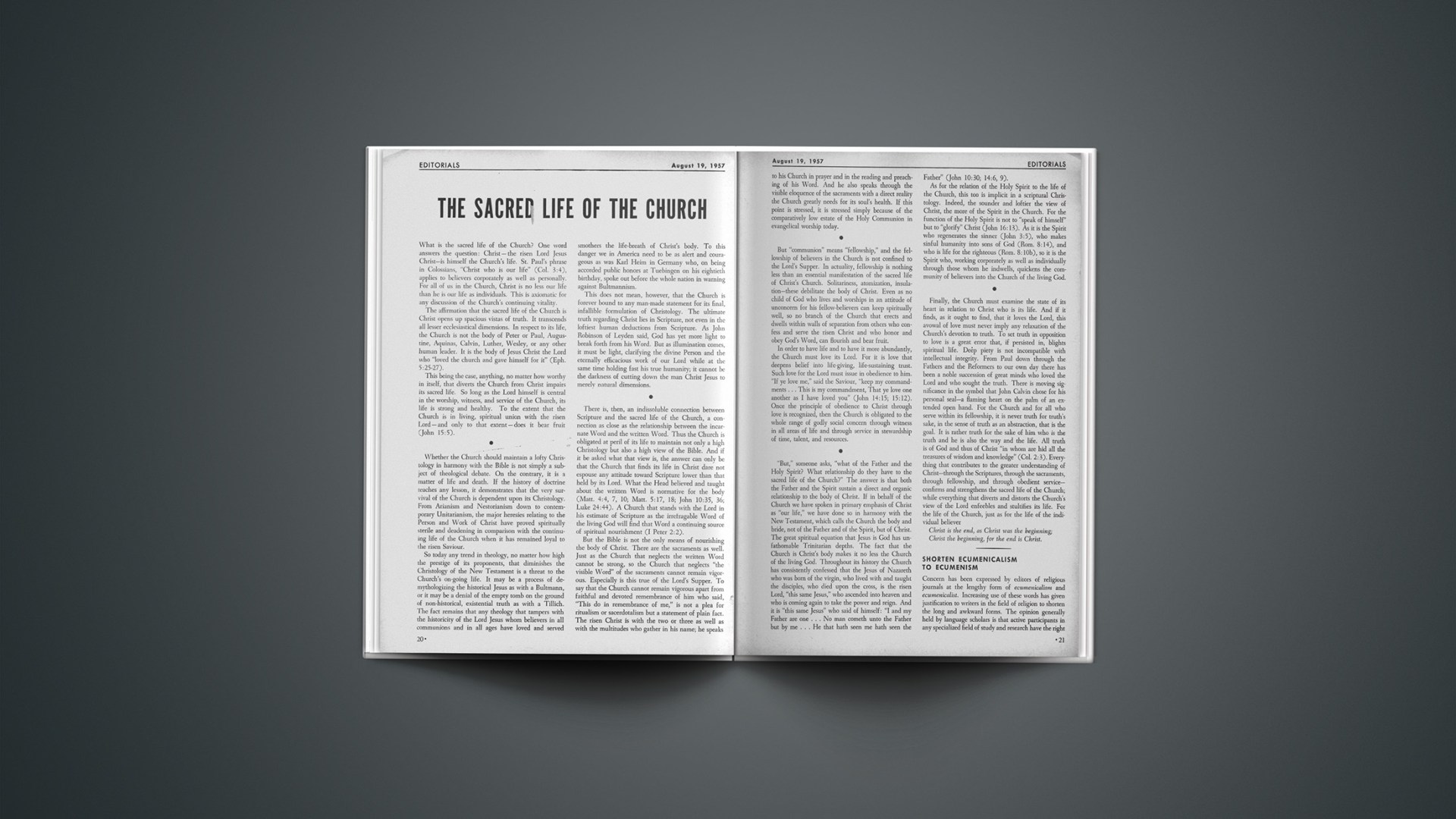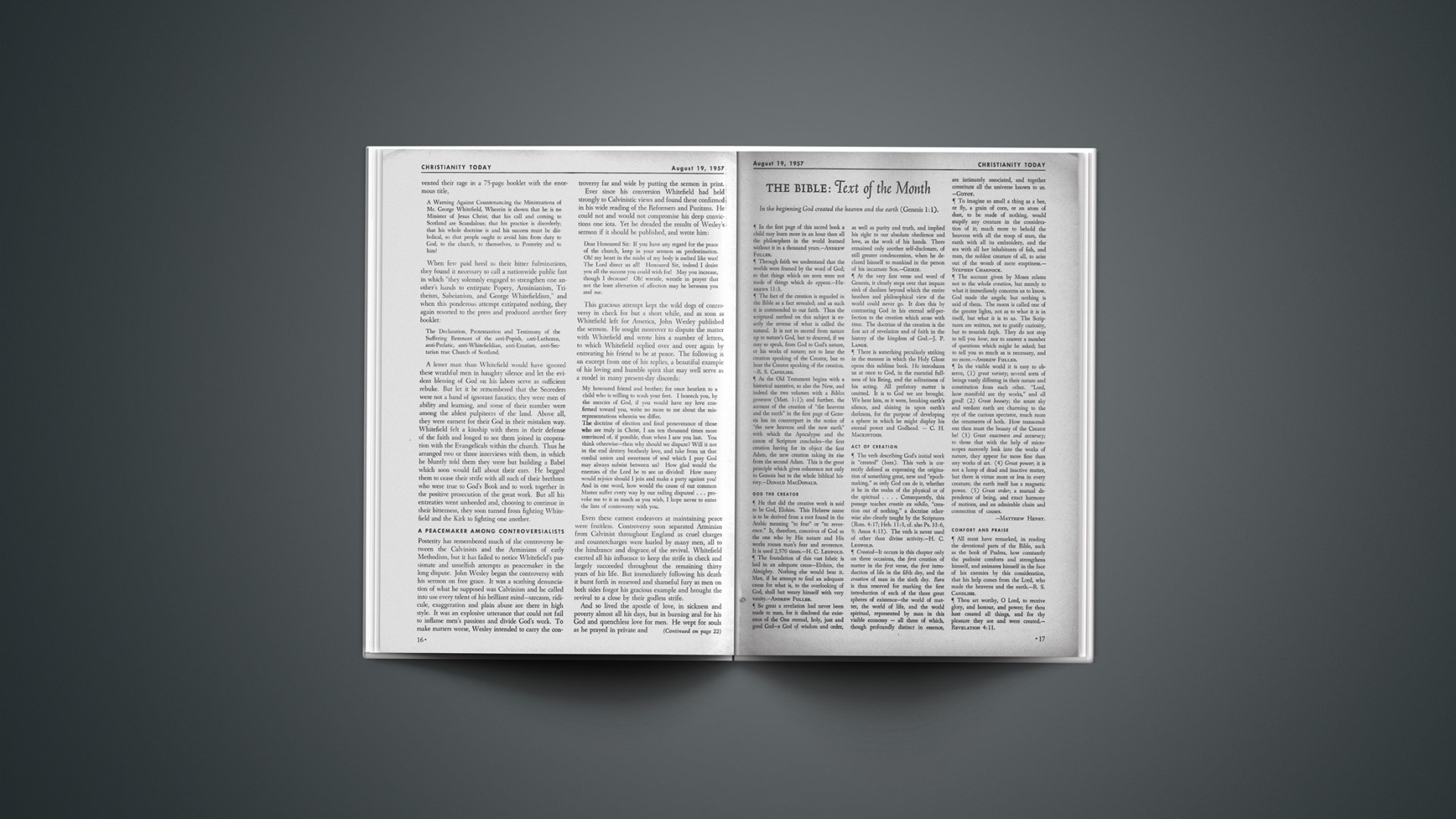Argentina Progress
A young Scotsman, John F. Thomson, preached a sermon in Spanish from the pulpit of the American Methodist Church at Buenos Aires in 1867. He probably did not realize that he was making history.
Ninety years later evangelicals from many different denominations and missions gathered on the anniversary to praise God for all that had been accomplished.
Evangelical forces in Argentina are much smaller than those in the sister republic, Brazil, but they are making themselves felt in the life of the nation. They number about 500,000 out of a population of nearly 20 million. The largest work, numerically, is probably that of the Plymouth Brethren, known in Argentina as “Free Brethren.” More than 200 assemblies are spread over the country. The Southern Baptists come second and the Methodists third. Many other groups are at work, among them some very vigorous Pentecostal churches.
Several restrictions imposed on Protestants by the Peron regime have been lifted by the present government. It is now possible to hold street meetings in many Argentine cities and the Gospel is once more preached by radio. The “Index of Non-Catholic Cults,” a Peron creation which put all evangelicals under police supervision, is dead and is to be abolished this year.
On the other hand 12 new Roman Catholic bishoprics have been created with the object of “strengthening those who are struggling against Protestantism, Communism and Secularism.”
—A.C.
Colombia Picture
Things looked brighter for Protestants in Colombia after the executive committee of the Evangelical Confederation obtained a friendly interview with a special commision named by the government to discuss and define the question of religious liberty.
The conversations were carried on in a spirit of sympathy and understanding. As a first step toward establishment of rights for the evangelical minority, the government spokesmen promised to restudy the directives on the subject issued by the ousted Rojas Pinilla regime.
At Barranca Bermeja, however, the Four-Square Gospel Church, largest Protestant congregation in Colombia, was again closed by order of government officials only two weeks after it had opened its doors for the first time in over a year.
Although the church boasts a membership of over 1,000 and is located in a bustling oil-refinery town, its right to existence is denied by government officials who claim that the terms of Colombia’s Concordat with the Vatican prohibits the gathering to worship in non-Roman Catholic churches when these gatherings are located in “mission territory”—large tracts of land, comprising three-fourths of the nation, turned over exclusively to the church of Rome for development.
To spearhead its “campaign against Communism and Protestantism in Latin America,” according to Vision magazine, the Vatican has decided to establish in Bogota a central episcopal office (CELAM) similar to the National Catholic Welfare Conference office in Washington, which will develop a common strategy and coordinate the activities of the bishops, the religious orders and the Latin American lay organizations.
“In Vatican circles, the progress of Protestantism in Latin America is considered to be alarming,” explains Vision, “and this is attributed to the acquisitive power of the dollar. Well-equipped Protestant schools, the widespread distribution of pamphlets and Protestant reading matter, the powerful Protestant missions and the possibility that future directors of these missions may study and be trained in Latin America itself, are the principal factors which contribute to the spread of Protestantism in Mexico, Central and South America.”
One major purpose of the new CELAM office will be to establish contact with Catholic populations abroad in an effort to bring into Latin America more priests and missionaries.
—W. D. R.










